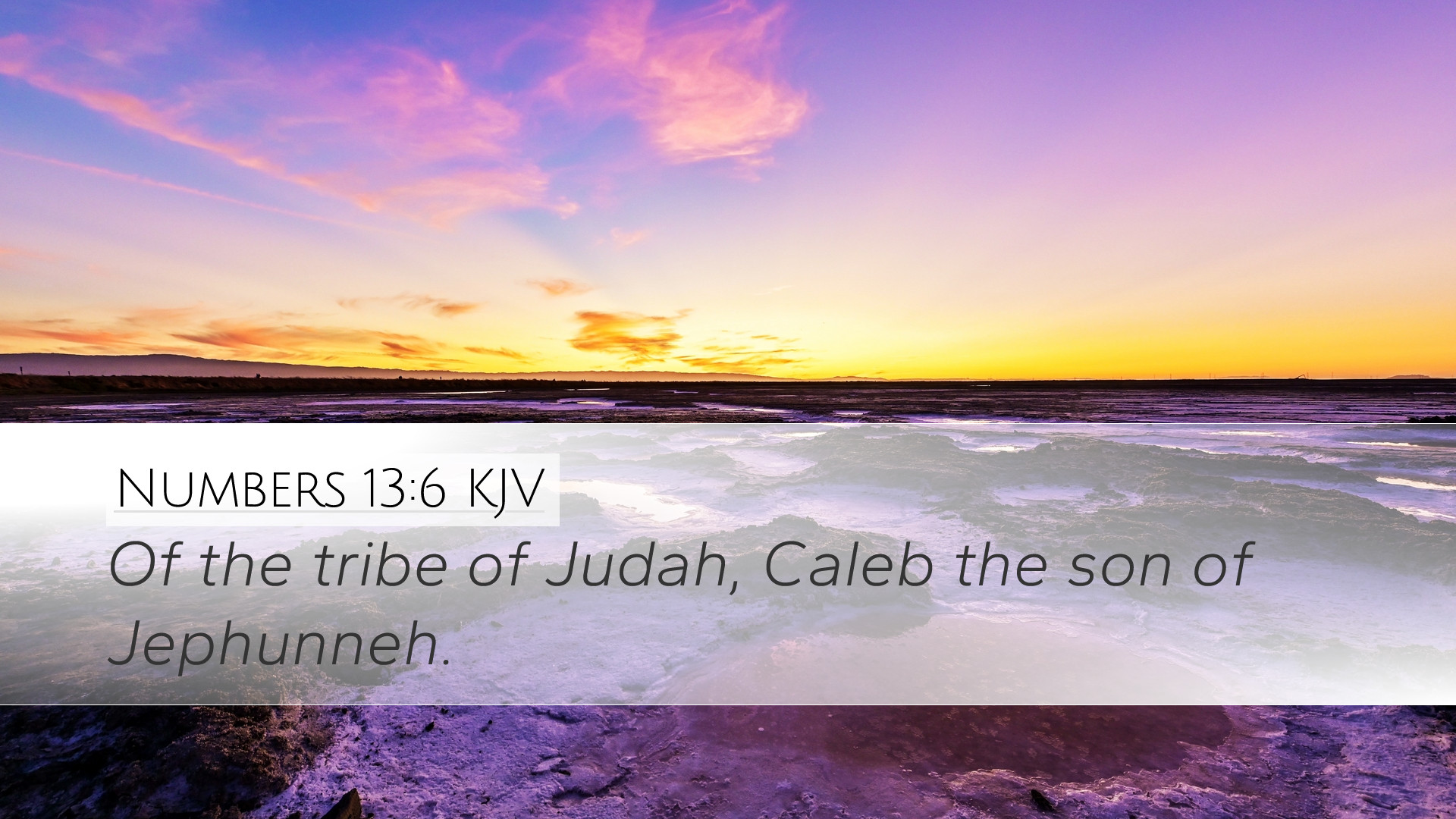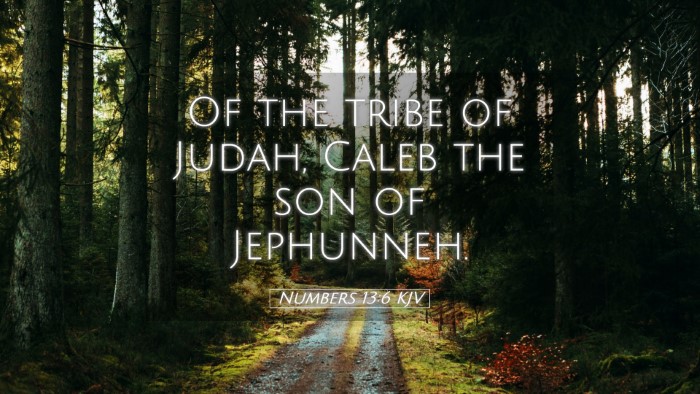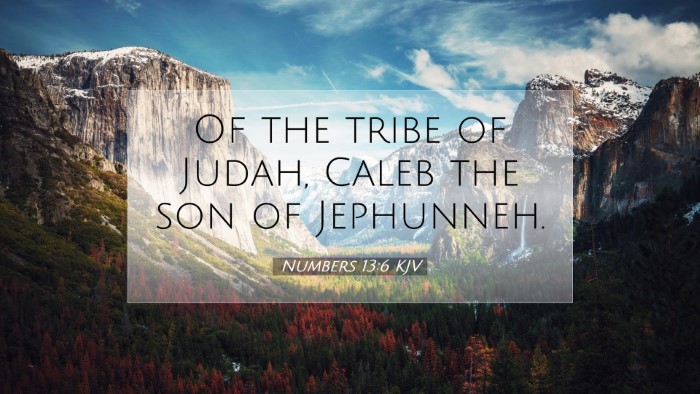Commentary on Numbers 13:6
Verse Text: "Of the tribe of Judah, Caleb the son of Jephunneh." (Numbers 13:6)
Introduction
This verse introduces Caleb, the son of Jephunneh, as a representative of the tribe of Judah in the exploration of the promised land. The selection of Caleb and the implications of his character and faith play a significant role in the narrative of Israel’s journey to the Promised Land.
Character Insights
Caleb is portrayed as a man of notable faith and courage, setting an example for believers throughout generations. His selection as a spy is not incidental but underscores the qualities of trust and commitment to God’s promises.
- Faithfulness: Lent emphasis by Matthew Henry, who underscores Caleb's unwavering faith amidst a skeptical community. His spirit echoes the tenacity of a true Israelite who holds steadfast to God's word.
- Leadership Qualities: Martin Luther viewed Caleb's leadership as essential—he did not merely passively witness God’s works; he actively engaged others to pursue God's will.
- Courage: Albert Barnes highlights Caleb's courage, especially in contrast to the other spies who spread fear. Caleb was not deterred by the giants in the land but trusted in God's strength to conquer them.
Cultural and Historical Context
Understanding the historical and cultural context in which Caleb operated provides deeper insight into this passage. The Israelites were at a pivotal moment in their journey, facing the daunting task of entering the land that had been promised to them.
- The Tribe of Judah: The tribe’s designation in this verse signifies a vital role in the future of Israel, as Judah would become the leading tribe, connected to the Davidic line—a foreshadowing of Christ.
- Caleb's Heritage: Adam Clarke notes that Caleb's lineage as a Kenizzite (from the Edomite descent) demonstrates God's inclusive plan for all who exhibit faith, representing the multifaceted nature of God's people.
Spiritual Implications
This passage is rich with spiritual implications that resonate with contemporary believers. It prompts reflection on how one’s background or past does not inhibit God’s call and usefulness in His plans.
- Faith Over Fear: Both Henry and Barnes emphasize that while fear was prevalent, Caleb's faith catalyzed action. The call for believers today is to face daunting prospects with unwavering faith and assurance in God's promises.
- Divine Selection: The choice of Caleb highlights the divine nature of God's selection process, inspiring pastors and theologians to communicate that God equips and empowers those He calls, regardless of their beginnings.
Application for Pastors and Theologians
This verse, while brief, offers profound lessons for sermon preparation and Bible teaching. It serves as a powerful reminder of the essential characteristics of faith and trust in the face of adversity.
- Encouragement for the Faithful: Pastors can use Caleb’s story to encourage their congregations, fostering a spirit of resilience and boldness to trust God against all odds.
- Fostering Leadership: The assembly of leaders should look to Caleb as a model for cultivating faith-driven leadership that embraces challenges while holding firmly to God's promises.
- Inclusivity in God’s Plan: The diverse lineage of Caleb can inform discussions on the nature of God's grace, and how all—regardless of background—can become part of His story when they exhibit faith.
Conclusion
Numbers 13:6 is a pivotal verse that introduces not just a character, but a principle of faith and action. The legacy left by Caleb transcends time, demonstrating the importance of trust in God as believers embark on their journeys. His faith challenges us to look beyond obstacles and to embrace the promises of God with boldness and conviction.


